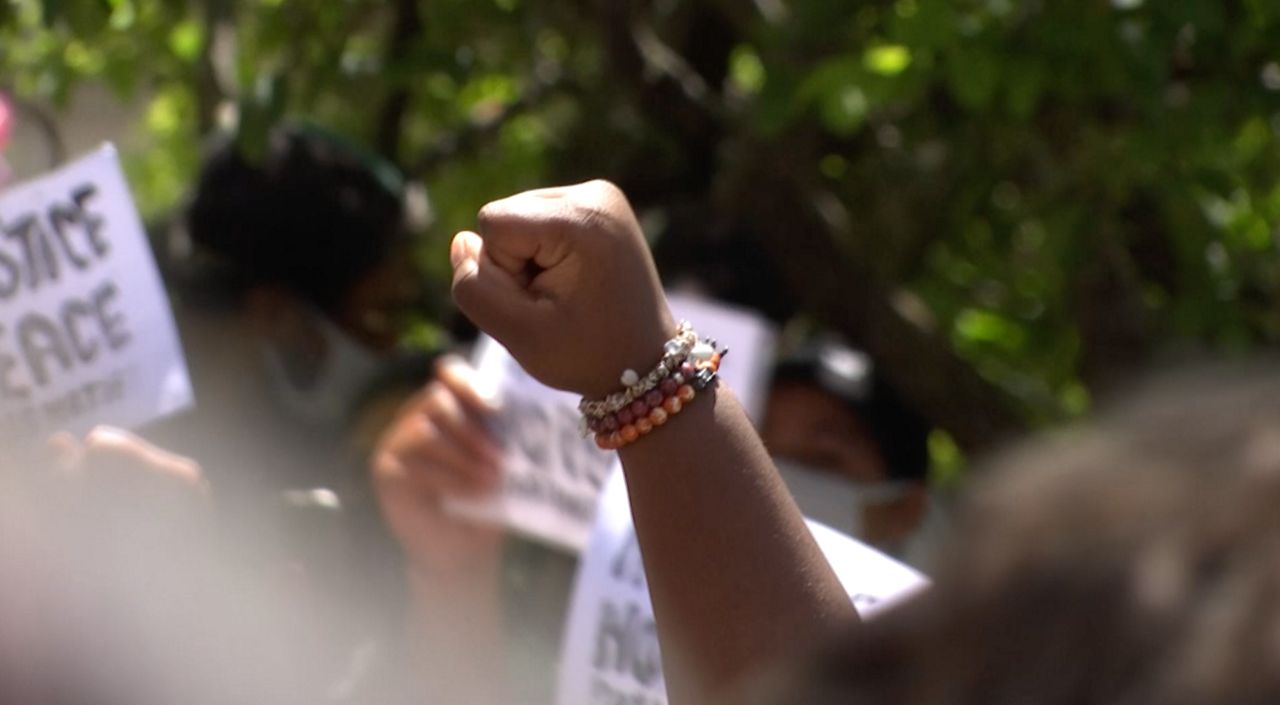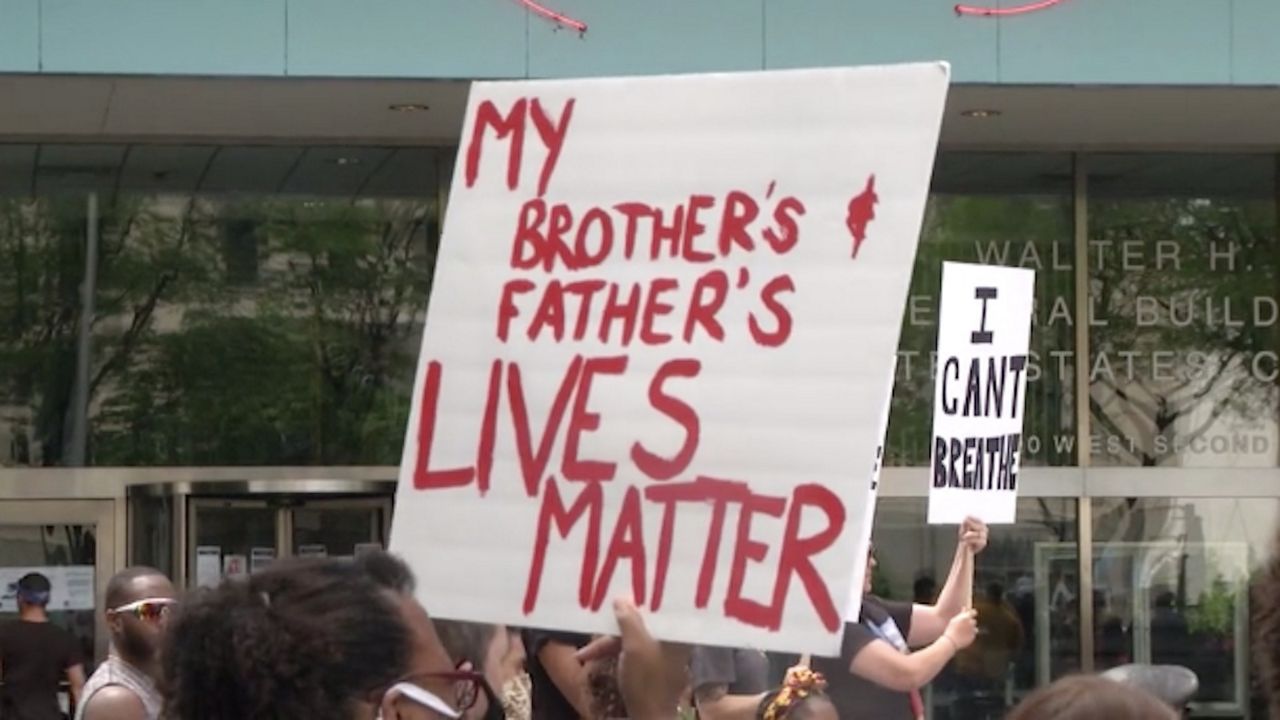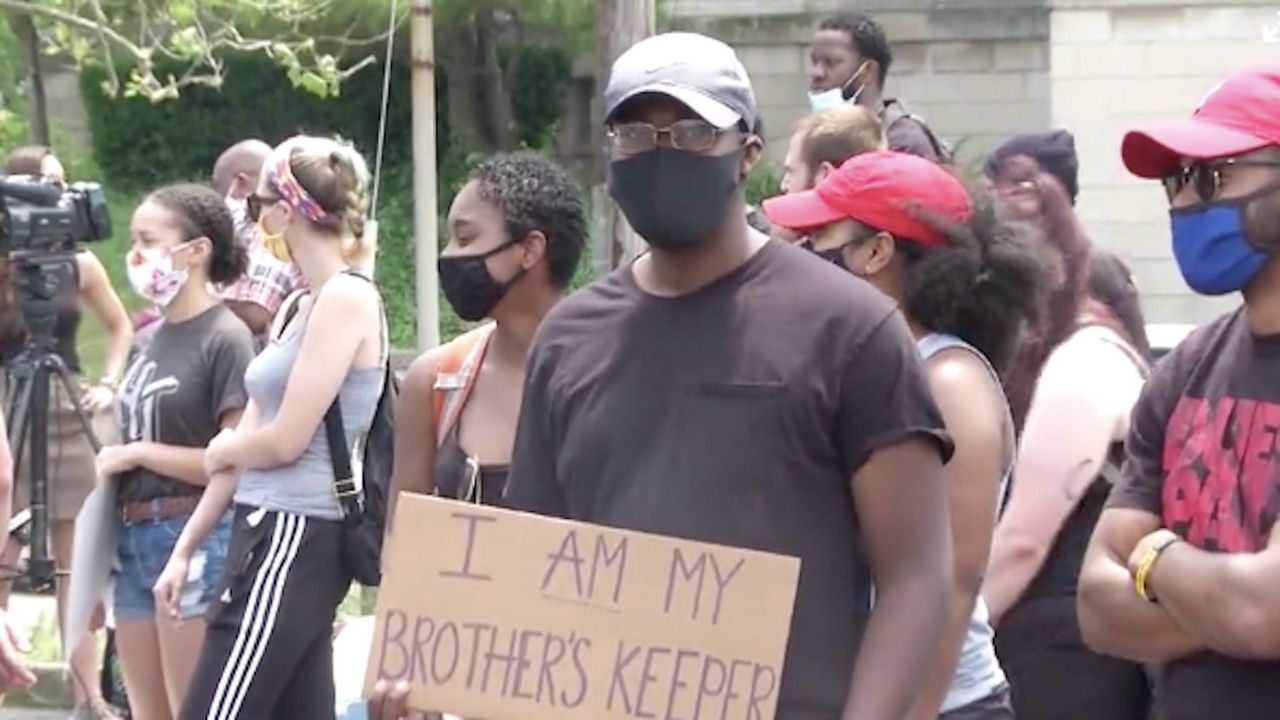CLEVELAND, Ohio — With protests leading to large gatherings, we asked doctors what people should know about the potential increased risk of spreading COVID-19 and what they can do to prevent it.
“I’m worried," said Dr. Amy Edwards MD, a pediatric infectious disease specialist for University Hospitals of Cleveland. "I’m worried if some of these protesters are sick or are asymptomatic, but have COVID, that they’re going to spread it to other people and that we’re going to have, you know, a lot of sick protesters here in a couple of weeks."
What You Need To Know
- Organizers of peaceful protests and marches have encouraged and even provided masks for participants in some cases
- Many protests have not resulted in social distancing
- Doctors say shouting and singing at protests add to the potential for spreading COVID-19 at events
Dr. AmyEdwards says the shouting and singing at protests add to the potential for spreading COVID-19 at events.
"And not only do a lot more droplets come out when you sing or shout, but the radius that they spread is much bigger because it’s coming out with so much more force," said Edwards. "If you think about the singing and shouting and shouting in that close proximity, you know, the chance that somebody gets sick is so high, and it just really has me worried."
Experts say it’s really important to have a mask on if you decide to go to a protest, and consider not going to see anyone who might be vulnerable if they get the virus.
“We don’t not want to quell people voicing the voice that will help change the world," said Dr. Nick Dreher MD, medical director for the Population Health Innovation Institute. "So after you go there, if you think you were possibly exposed because you weren’t wearing a mask or whatever, you should try to stay away from people you love that are elderly or people you love that are sick. I mean at least for 7 to 14 days.”
Doctors Edwards and Dreher say we will soon learn more of just how much COVID can spread in warm, outdoor environments.
"I think in a week or two, we’re really going to start to know whether these outdoor gatherings are safe or not," said Dr. Edwards.
"Some states that opened up and didn’t have the big jump of cases that we were fearful of, which is great news, and we probably have to look back at that and go, well, maybe some of the things we were recommending were too conservative and didn’t matter, and maybe lighter versions of it could have equal effect," said Dr. Dreher.
Dr. Dreher says he does believe MetroHealth is ready to treat an uptick in patients if that happens because of recent large gatherings.









